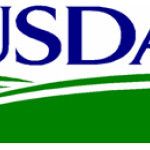- Domeniu: Government
- Number of terms: 41534
- Number of blossaries: 0
- Company Profile:
This Act is P.L. 75-717 (June 25, 1938) which is the basic authority intended to ensure that foods are pure and wholesome, safe to eat, and produced under sanitary conditions; that drugs and devices are safe and effective for their intended uses; that cosmetics are safe and made from appropriate ingredients; and that all labeling and packaging is truthful, informative, and not deceptive. The Food and Drug Administration is primarily responsible for enforcing the FFDCA, although USDA also has some enforcement responsibility. The Environmental Protection Agency establishes limits for concentrations of pesticide residues on food under this Act.
Industry:Agriculture
The grain inspection program administered by the Grain Inspection, Packers and Stockyards Administration. The program establishes official U.S. standards for grain and certain other commodities such as rice, hops, and processed grain products. The program offers a user-financed nationwide inspection and weighing system to certify that grain meets approved standards. By law, all grain exported from the United States must be officially inspected.
Industry:Agriculture
The federal government began regulating pesticides in 1910 for the purpose of preventing the exploitation of farmers from adulterated and ineffective products. The original 1947 FIFRA was the first effort to address potential risks to human health. FIFRA was completely revised in 1972 (P.L. 92-516) to become the basis for current federal policy. The law directs EPA to restrict the use of pesticides to prevent unreasonable adverse effects on people and the environment taking into account the costs and benefits of various uses. The sale of any pesticide is prohibited unless it has gone through registration and is labeled to show the approved uses and restrictions.
Industry:Agriculture
Local farmer-owned organizations through which farmers obtain long-term (up to 40 years) loans on land. The associations are an integral part of the Farm Credit System.
Industry:Agriculture
Institutions within the Farm Credit System (FCS) that have authority to make long-term real estate loans to eligible retail customers. FLCAs receive their funds directly from the Farm Credit Banks.
Industry:Agriculture
This Act is P.L. 94-579 (October 21, 1976) 1) which set out for the Bureau of Land Management standards for managing public land, including land-use planning, sales, withdrawals, acquisitions, and exchanges; 2) authorized local advisory councils to represent major citizens groups interested in land use planning and management; 3) established criteria for review of proposed wilderness areas; and 4) provided guidelines for other aspects of public land management such as grazing. This law is also known as the BLM "organic" act.
Industry:Agriculture
Promote orderly marketing, a means authorized by legislation for agricultural producers to collectively influence the supply, demand, or price of particular commodities. Approved by a required number of a commodity's producers -- usually two-thirds -- the marketing order is binding on handlers of the commodity. It may limit total marketings, prorate the movement of a commodity to market, or impose site and grade standards.
Industry:Agriculture
Enacted June 30, 1906, as chapter 3913, 34 Stat. 674, and substantially amended by the Wholesome Meat Act 1967 (P.L. 90-201), requires USDA to inspect all cattle, sheep, swine, goats, and horses when slaughtered and processed into products for human consumption. The primary goals of the law are to prevent adulterated or misbranded livestock and products from being sold as food, and to ensure that meat and meat products are slaughtered and processed under sanitary conditions. These requirements apply to animals and their products produced and sold within states as well as to imports, which must be inspected under equivalent foreign standards. The Food and Drug Administration is responsible for all meats considered "exotic" at this time, including venison and buffalo.
Industry:Agriculture
This Act is P.L. 93-629 (January 3, 1975) which was adopted to prevent foreign weeds from entering and becoming established to the detriment of U.S. crops and livestock. Under this act, the Animal and Plant Health Inspection Service inspects incoming passengers, baggage, and cargo at international airports, seaports and border stations to intercept any of 2,300 listed noxious weeds before they enter the country. If a noxious weed does become established, APHIS has the authority under this act to work with federal, state, and local agencies to confine, eradicate, or control it.
Industry:Agriculture
This Act is P.L. 85-36 (May 23, 1957) which prohibits the movement of plant pests from a foreign country into or through the United States unless authorized by USDA. The law gives USDA’s Animal and Plant Health Inspection Service broad authority to inspect, seize, quarantine, treat, destroy or dispose of imported plant and animal materials that are potentially harmful to U.S. agriculture, horticulture, forestry, and, to a certain degree, natural resources.
Industry:Agriculture
